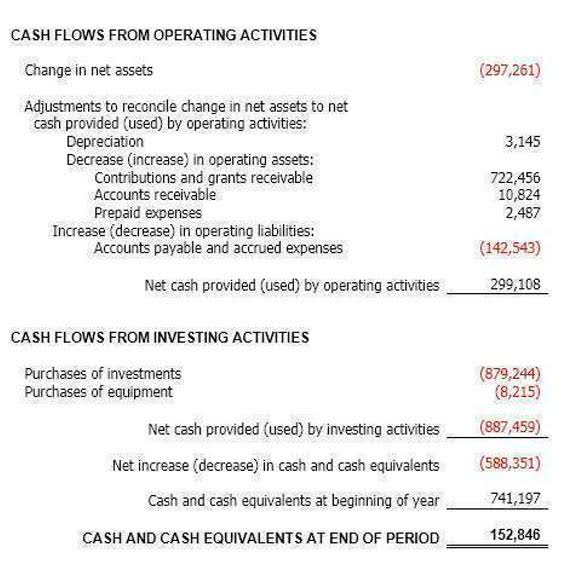
This means one client was using another client’s money—signaling a violation of a lawyer’s fiduciary responsibilities. A fiduciary must act in the best interests of the beneficiaries in managing assets. Still, it’s important to make sure you are confident the individual you select as your trustee will act appropriately and has the necessary knowledge to manage your property attorney trust account wisely. This is someone who will take over managing assets in the event that the grantor no longer can due to death or incapacity. Think carefully about who this will be as this individual is someone who will be managing your money and property if you become unable to do so on your own.
- It’s a type of property control trust that limits the beneficiary’s access to trust principal.
- For example, when used with Clio, QuickBooks Online ensures you keep your trust funds in balance.
- In other words, do you want to use one Fee Income account or establish separate accounts to track fee income?
- All 50 states have an IOLTA program, and participation is mandatory in most.
- Trust accounts offer substantial tax benefits and safeguards assets from creditors, making it useful for tax reduction strategies and asset protection.
- Knowing the different types of trusts and their benefits helps in making informed decisions about setting one up.
Choosing the Right Type of Trust
Using these items will help you accurately bill clients if you are billing within your QuickBooks. We do not recommend using multiple Advanced Client Cost accounts and it is certainly not necessary. Any time a law firm accepts payments for retainers from clients or handles money on a client’s behalf, it is put into an IOLTA. Legal fees that are not part of a retainer can generally go directly into an operating account since the payment is not for future work. And truthfully, not enough time is spent training attorneys on the various intricacies of correctly managing their finances. Unfortunately, in the end, mishandling an IOLTA trust account, even as the result of an honest mistake, can irrevocably damage your reputation and erode client trust.

Continuing Legal Education
A trust account overdraft may result in a grievance investigation. It is recommended that the authorisation to the appropriate persons be made in writing. The original of this authority is normally sent to the bank and the retained earnings copy retained by the law practice.
- Maintaining a business checking account (and using it for business purposes only) draws a critical line between your business and personal affairs.
- They also provide legal, general, and medical transcription services nationwide.
- Some companies also offer discounted estate planning services as part of their employee benefits packages.
- Rule 5-1.2(b)(3), Rules Regulating The Florida Bar, allows attorneys to maintain copies of canceled checks rather than the originals.
- For every type of income in your income accounts, set up “Double sided service items”.
IOLTA & Client Trust Accounts

Her work has appeared in MarketWatch, CNBC, PBS, Inverse, The Philadelphia Inquirer, and more. You can also create a shortened version of your trust document called a certificate of trust to use as proof of the trust’s existence when handling trust matters. Once you have all these provisions laid out in your trust document, notarize your trust. Not all jurisdictions require notarization, but acknowledging the trust document before a notary public adds a layer of authenticity, credibility, and protection against potential disputes or challenges in the future.

Can you practice law without a trust account?
Each type serves distinct purposes, such as avoiding probate, offering tax benefits, and protecting assets from creditors, catering to various estate planning needs. Simple trusts, like revocable living trusts, typically require less time and expertise, resulting in lower legal fees. Complex trusts, such as irrevocable or special needs trusts, may need detailed planning and documentation, increasing costs. The Washington State Bar Association has developed sample check register and client ledger templates, which lawyers may choose to use to track client funds in their trust account. The templates are in Excel format and are formatted as tables with formulas to calculate the running balance in both the check register and individual client ledgers. Certain cells are locked to ensure formulas real estate cash flow and other functions are unchanged.
How does Smokeball help with trust accounts?
In other words, unearned money held in an IOLTA account cannot be used for operating expenses or a lawyer’s personal expenses. Additionally, to maintain ethical and legal standards, attorneys cannot profit from any interest generated by these accounts. Trust accounting refers to the process of managing funds that a lawyer holds on behalf of clients. It’s crucial for lawyers because it ensures that client funds are handled with integrity, transparency, and in accordance with legal and ethical standards. Proper trust accounting prevents commingling of funds, ensures accurate record-keeping, and maintains the trust and confidence of clients. Compliance with trust accounting rules is also a requirement of state bar associations, making it essential for legal practice and the avoidance of disciplinary actions.

- Trusts offer numerous benefits, including control over asset distribution, privacy, and potential tax advantages.
- Rule 5-1.1(a)(1) requires that all trust accounts, including IOTA accounts, should be clearly labeled and designated as a trust account.
- It is critical to check with the Bar Association in your state to see if they allow General Retainers.
- Start your journey towards impeccable trust accounting and enhanced operational efficiency by trying out RunSensible’s Free Trial today.
- Any portion that does not constitute earned fees must remain in the trust account.
Use this methodology if you are tracking income by the type of work. If you are tracking income by a timekeeper, you may want to setup items for every timekeeper. Rates can be setup using Price Levels, Bill Rate Levels or a combination of both. A law practice is no longer required to notify the designated local regulatory authority – the Law Society – of the appointment or termination of an authorised signatory. Often, you should still create a will even if you create a living trust.

